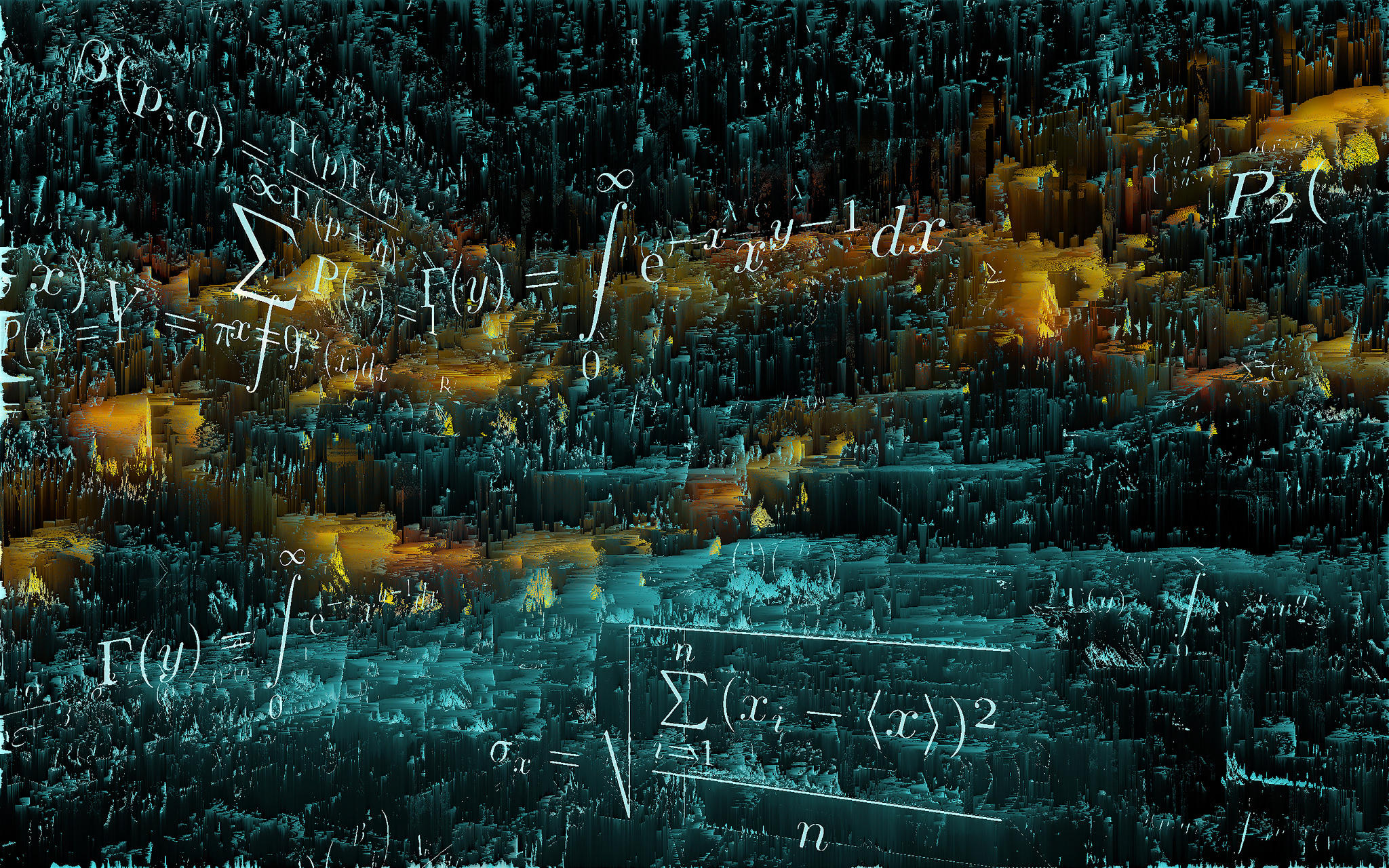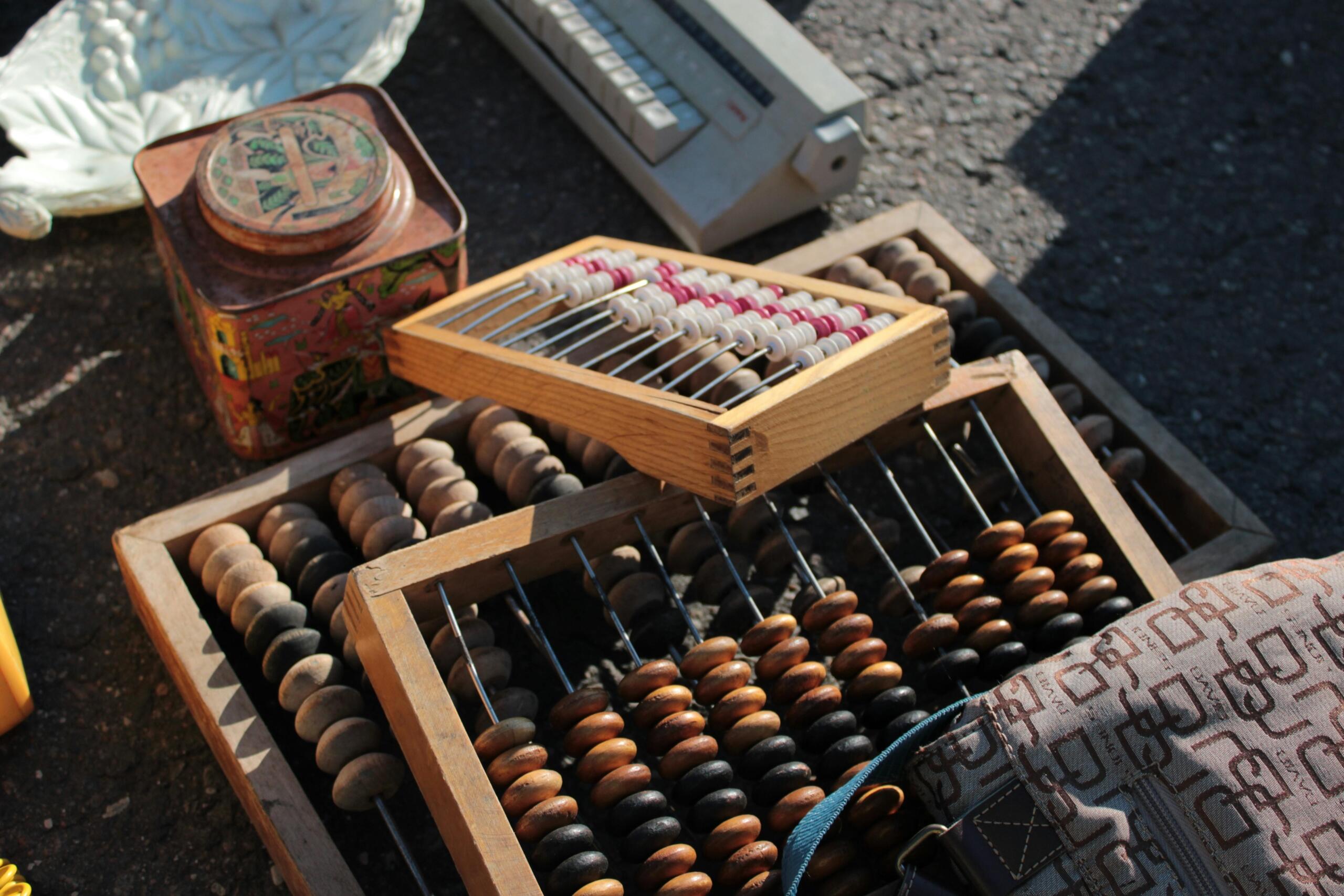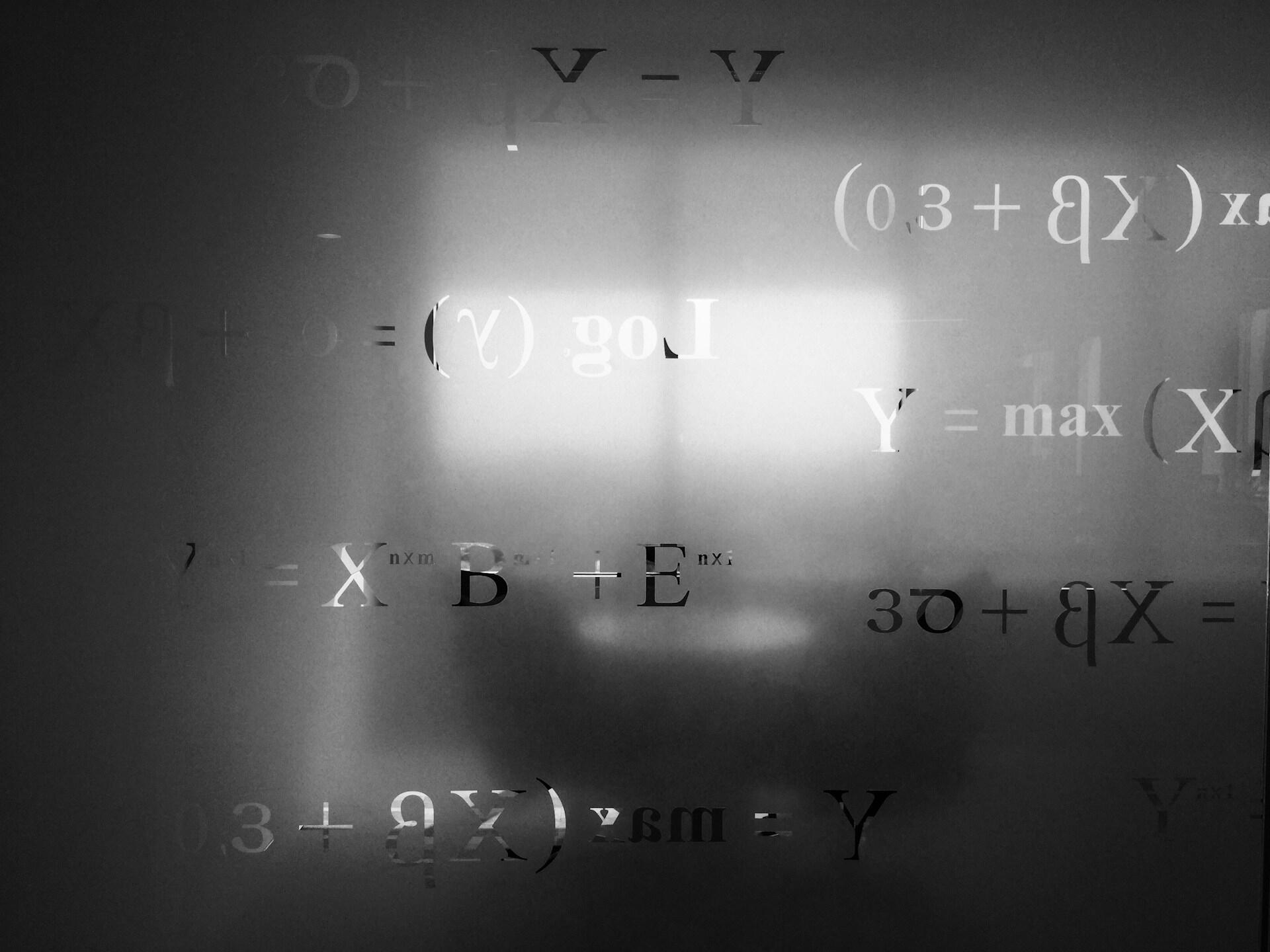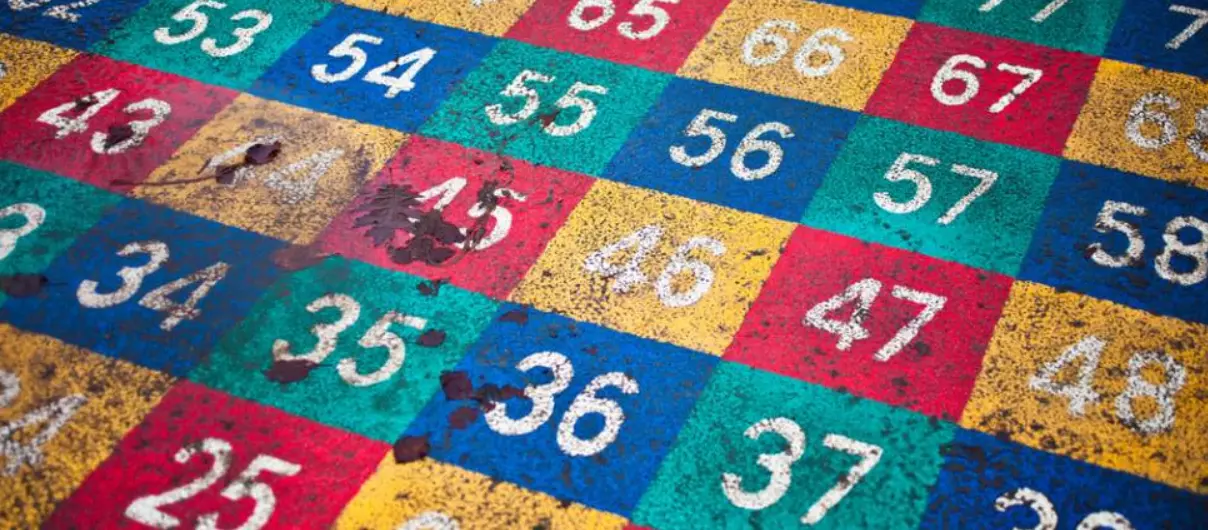
Maths and Numbers through History: Let's go back in time!

Maths is the formal and exact science that studies the properties and relationships between abstract entities, such as numbers, the relationship between shapes and space, functions, and randomization. To organize and classify all its components, Maths is subdivided into different branches. The main four are algebra, geometry, calculus and statistics, and probability. However, did you know that there are about 5000 related branches to maths? Arithmetic, set theory, trigonometry, and mathematical analysis, are just parts of this immense universe!
But, why is Maths so fascinating? Numbers help us understand the world and the reality we all know. The real-life applications of maths are endless, and we can find them everywhere, in everything we do. Do you want to know more about how to manage your money? Do you use mobile devices and computers? Are you interested in arts and architecture? Do you want to understand sports better? Are you wondering how to prepare the most decadent red velvet cake at home? Maths is the answer to everything! Even if we are not aware, we are surrounded by numbers, equations, algorithms, patterns, and predictions. Especially in this technological age, we won't be able to hide from them again!
Check out our guide to the GCSE maths syllabus.
And what is the origin of this crucial science? Maths has existed since the origins of time. The first knowledge of references for the use of maths dates back to 7,000 BC in the ancient Egyptian civilization. The Egyptians developed hieroglyphic writing, whose symbols represented a number or an idea. And later, they created a decimal counting system by grouping the elements ten by ten, assigning a different symbol to each. In ancient Egypt, they used maths to measure time, predict the level of the Nile floodings, calculate areas of land, count money, work out taxes, and even cook. Maths were so vital that Egyptians even used them in mythology!
Do you know what a prime number is? Find out in thie article!
In 4,000 B.C. The Babylonian civilization developed a sexagesimal numbering system to measure time in hours, minutes, and seconds and determine angles and geographic coordinates. The Babylonian number system uses base 60 instead of 10, and it was originally developed from a number system that belonged to a much older civilization called the Sumerians. This type of numbering system is quite complicated; however, it was used by other cultures, such as the Greeks around 600 BC, to develop their number system based on ten. The Greek number system differs because it uses the 27-letter Greek alphabet.
In the year 570 BC, the Indians created a system of numerical notation in which the value of a number was equal to its position; it used digits and other symbols and established rules for arithmetical operations and geometry. And the Chinese civilization, for its part, also developed their concept of numbers and counting through a thirteen ideogram numerical system that represented the ten, hundred, thousand, etc. The Chinese were also the first to use decimal fractions.
Between 400 and 300 BC in America, the Mayan civilization and other Mesoamerican cultures also developed an advanced vigesimal numerical system used to measure time and not perform mathematical calculations. The Mayan numeral system represented numbers and calendar dates in the Maya civilization, and the numerals were made up of zero, one, and five.
As you can see, all ancient civilizations made outstanding contributions to what we know today as the Arabic decimal system, which is the most common system for the symbolic representation of numbers in the world.
Learn more about lifelong learning Maths in Canada here!

Some interesting facts about Numbers you can't miss!
Now that you are a little more steeped in how ancient civilizations developed the numerical systems let's deepen into some curious facts about numbers that will make you look even more interesting than you already are!
- The Number Zero:
Did you know that the number zero has a vast and long history that has been developed over centuries? The first recorded zero appeared in Mesopotamia around 3 BC. However, in America, the Mayans invented it around 4 AD. Even if it is so ancient, when the zero found its way to Europe, the church banned it for fear of representing the devil!
But, what would happen if there was no zero? Even if zero has no value, it plays a central role in maths since it represents an element of integration and an algebraic structure. Without the number zero, no algebra will exist, no arithmetic, no decimal, no boundary between negative and positive numbers, and most importantly- maybe no computers! However, did you know that zero is the only number that can't be represented in Roman numerals?
- The history of Pi:
Pi, also known as the Archimedes constant, is an irrational number which simple definition is the ratio between the circumference (c) of a circle and its diameter (d) (c/d=pi). π is the famous symbol for Pi, and it refers to the number of times a circle's diameter will fit around its circumference.
The Pi has been studied for thousands of years! The Indian mathematicians Madhava and Aryabhata made significant contributions to finding its exact value. And through history, many mathematicians followed their path. The Austrian astronomer C. Greenberger first set Pi to 38 digits of accuracy: 3.1415926535897932384626433832795028841. Then, the British Mathematician Isaac Newton and the German mathematician Gottfried Wilhelm Leibniz discovered Pi to 15 numbers using calculus' infinite series: 3.14159265358979. Also, the British mathematician Abraham Sharp discovered Pi to 71 digits of accuracy in 1699: 3.1415926535897932384626433832795028841971693993751058209749445923078164. And, even the British astronomer John Machin found Pi to a 100 digits in 1706: 3.1415926535897932384626433832795028841971693993751058209749445923078164062862089986280348253421170679. However, the truth is that Pi has 6.4 billion known digits! And it would take a person approximately 133 years to write them all! Were you thinking about giving it a try? Good luck!
- Introduction to the Divine Golden Ratio:
A golden ratio is an irrational number roughly equal to 1.61803, represented by the Greek letter φ. In maths, if two quantities are in the golden ratio, their ratio is the same as the ratio of their sum to the larger of the two quantities.
There is a particular equation to determine the golden ratio: a+b/a=a/b =φ. You can build something called the golden spiral from this equation, a logarithmic spiral found everywhere in nature. Even this logarithmic spiral pops up even in the DNA structure and vegetation!
The golden ratio is vital that it is often called "The most beautiful number in the universe." The Renaissance Artists also called it "The Divine Proportion" and some mathematicians even think the golden ratio may be a divine number. For example, did you know that even ancient Egyptian architecture follows the golden ratio for the pyramid design? Are you thinking about conspiracy theories just like us? Wow! we believe there are still a lot of mysteries to solve! Maybe this is why you need to start studying maths ASAP!
Find good college algebra courses here on Superprof.

- The Mysterious Perfection of Maths:
Now, let's talk about the perfect numbers of Maths! The "Perfect numbers" equal the sum of their divisors. For example, number 6 could be a perfect number since it equals 3 + 2 + 1; the same as number 28, since 14 + 7 + 4 + 2 + 1. When all the number's divisors (excluding that number) add up, it is known as a perfect number, and actually, they are very rare! Today only 51 of them have been found. Apart from 6 and 28, other perfect numbers are:
- 496
- 8128
- 33550336
- 8589869056
- 137438691328
- The Numerical System as we know it today:
A numerical system is a mathematical way of representing the numbers of a given set by mathematically using the numbers or symbols. The numerical system we use today comprises the ten main characters (1, 2, 3, 4, 5, 6, 7, 8, 9, 10), and which value increases by powers of ten.
Our numerical system is based on a Hindu-Arabic numeral system and is the most common one with the symbolic representation of numbers in the world! It was invented between the 1st and 4th centuries by Indian mathematicians, but it wasn't until the 15th century that these symbols started to be used throughout Europe. However, did you know that there are four common types of number systems? They are based on the base value and the number of allowed digits. They are classified as:
- The decimal number system: It uses ten digits from 0 to 9 for the creation of numbers;
- The binary number system: It uses two digits to create numbers and is very useful in electronic devices and computer systems; for example, 0, 1, 10, 11, 100, 101, 110, 111, 1000, and 1001;
- The octal number system uses the base value of 8, and it uses eight digits from 0 to 7 to create these octal numbers. Examples: 80, 81, and 82;
- The hexadecimal number system's base value is 16, and it uses 16 digits to create its numbers. Digits from 0 to 9 are represented like in the decimal number system. For example, ten is represented as A, 11 as B, 12 as C, 13 as D, 14 as E, and 15 as F.
As you can see, mathematics comprises millions of elements, and today its importance is enormous for technological development and the latest scientific advances. Let's find out where math has been getting recently!

Latest breakouts in Maths!
While math may remain a mystery to many of us, it is seen by many mathematicians as an essential way of understanding the world. And it is that maths has been crucial for the development of humanity and that today, it has a substantial impact on scientific and technological development.
- Cancer research and Maths!
For example, did you know that maths contributes significantly to cancer research? Mathematics has played a significant role in breast cancer research, leading to the Norton-Simon hypothesis. This hypothesis is derived from a mathematical model that states that the cancer cell death rate resulting from treatment is directly proportional to the tumor growth rate, changing how chemotherapy is administered. This knowledge provides scientists with excellent tools for predicting treatment response. Learn more here!
- Pro-vaccination, Maths!
Also, as you probably know, the immune system is in charge of protecting the host against pathogens, stopping the development of tumors, maintaining homeostasis, and controlling organ regeneration. Understanding its dynamics, underlying mechanisms, and functioning better could be very beneficial to improve vaccine design and increase the immune response favorably. For this, researchers have used mathematical models to understand the immune system response to vaccines better. In practical terms, following these mathematical models will provide vaccine developers with different options to design effective vaccines.
- AI and Maths team up!
Mathematics is also currently used by artificial intelligence to develop new mathematical theorems. The University of Oxford, the University of Sydney in Australia, and Google's AI company DeepMind discovered a connection between algebraic and geometric invariants through mathematical patterns. Although this is a bit complex to understand, it suggests that machine learning can complement mathematical research in the upcoming years.
Do you realize how big impact mathematics has in our times? These are just some of the latest discoveries of this science; however, it makes us all think that the future has arrived!

Why is Maths complex for some people?
All these sound wonderful; however, why are maths sometimes a headache for some people?! As you know, maths is an abstract science. This means that to arrive at any solution, it speculates on the human mind and is not directly related to matter. To make it a little clearer, we can easily visualize what we are learning or reading in subjects such as literature or history because we can imagine what could be happening in a war scene, for example. However, solving a mathematical problem usually makes it more difficult to visualize it as something tangible. For this, developing abstract reasoning is very important since we can break down the whole into parts, simultaneously analyze different aspects of the same reality, and reach the conclusion of a mathematical problem. Other examples of abstract sciences are statistics and logic.
There are many reasons why maths could be complex for some people; here we will mention just a few. However, if you identify with any of them, believe us, you are not alone in this boat!
- The frustration cycle!
Frustration is very prevalent among students during mathematical problem-solving across all levels of learning. It's normal to lose motivation when we run into feelings of frustration. Which motivation will you have to learn complex mathematical problems if it is already difficult to assimilate the basic operations? None! Not having a basic understanding of maths, coupled with bad practice and poor support during the school environment, can lead to a sensation of helplessness and frustration, developing a feeling of inferiority compared to your classmates. Did you know that anxiety or math phobia can develop in severe cases?
- Existence of different paces of learning
Each of us has different capacities, interests, and abilities, which will allow us to learn and assimilate the content explained quickly or slowly. The educational system does not consider these rhythms since it homogenizes learning, harming students. But don't worry, just because you don't think of yourself as the most skilled person in maths, it doesn't mean you're not a genius in other areas. You have to consider that if you have a slightly slower pace of learning in math, you should identify it and find the necessary study resources to help you cope.
- There is a lack of practice
If you do not repeatedly practice the concepts of maths that you have learned after school, this may be interfering with your getting good marks. Remember that practice makes perfect, and if you want to solve a mathematical problem efficiently and independently, you have to practice, practice and practice again.
Although the teacher and the school environment play an essential role in understanding maths, if you are struggling with this or do not feel good chemistry with your teacher, you have to learn to take responsibility and solve what you have at hand. Let's do it!
If you live in Calgary and need more practice in maths, you can easily find a Calgary math tutor who will help you boost your skills.

Benefits of Learning Maths
But why is it so important to learn math? Well, having good numerical skills is valued in most fields. It is even considered critical, for example, in natural sciences, applied sciences, humanities, medicine, social sciences, and even disciplines such as music. However, developing mathematical skills goes beyond being favorable for your academic and professional development. Do you want to surprise yourself even more with this science? Let's discover some benefits that mathematics has for you!
- To improve your analytical skills, which helps you understand and solve problems using your resources. Developing these skills are used to detect patterns, generate ideas, observe data, collect information, interpret and make better decisions.
- To create the basis for systematic thinking, which fosters a type of analysis that seeks to understand the functioning of the parts as a whole—looking to develop your research skills? Study maths!
- To develop good problem-solving skills. A person needs to put in place proper cognitive functioning and remove emotional blocks that impede the flow of ideas while problem-solving. Through these mental skills, you will execute intellectual tasks quickly and efficiently, and they can also be exercised by doing math problems!
- To enhance your memory skills. Did you know that you can exercise your memory with maths? We need to have considerable memory resources to solve problems of a mathematical nature. For example, to understand the statement of the problem, the new information read must be integrated with the information already existing in our memory, remembering only the relevant data and activating a process of inhibition of irrelevant knowledge. Also, it is necessary to create a correct mental representation of the problem to reach the solution, requiring these memory skills.
As you can see, all these skills are essential for our academic, professional, social, and intellectual lives. It seems that maths is the perfect way to exercise your brain! But what exactly happens in our brain when performing mathematical activities?
Start taking online math classes now.
What does Maths do to Your Brain?
Are you aware of what happens in your brain while learning maths? Let's discover some mind-blowing facts about the brain and Maths!
Did you know that mathematical activity occurs mainly in the frontal and parietal lobes of the brain? Several studies have shown a more significant energy consumption when performing mathematical actions in these brain areas. It is also believed that mathematical thinking and visual-spatial cognitive ability occur. This means that when we resolve a mathematical problem, our verbal, spatial, conceptual, arithmetic, and reasoning abilities also interfere. Also, a segment of the parietal lobe called the cortex is the region involved in difficulties in learning maths and, at the same time, in individuals with exceptional abilities for mathematical processing. So if you are blaming your brain structures for your lack of math skills, there is no such thing! The best way to have a maths brain is by solving a few algebraic problems!
The role of neurotransmitters is also significant. As you may remember, neurotransmitters are chemical messengers responsible for exchanging nerve impulses between neurons. It has been seen that the neurotransmitter GABA (Gamma-aminobutyric acid) tends to be slightly higher in individuals with mathematical talent. However, again, there is no excuse for you to don't start working on your math skills! Rely on a healthy lifestyle and eat some vegetables to boost that GABA production, my friend!
We are not finished yet! What interesting facts have you discovered about mathematics, right? If you are interested in knowing a little more about maths, want to prepare better for an exam, want to feel more confident during class, have you thought about taking private lessons?
Give it a try with Superprof! It is a fantastic platform where you can find the best private tutors to excel in Maths near you! For example, find math courses in Waterloo here! Find math courses here on Superprof and become that expert you have always wanted to be!
Want to learn more about the number e, the number I is, and the symmetry and beauty of math? Find the best online math tutors and enjoy your path towards knowledge with Superprof!
Summarize with AI:

























